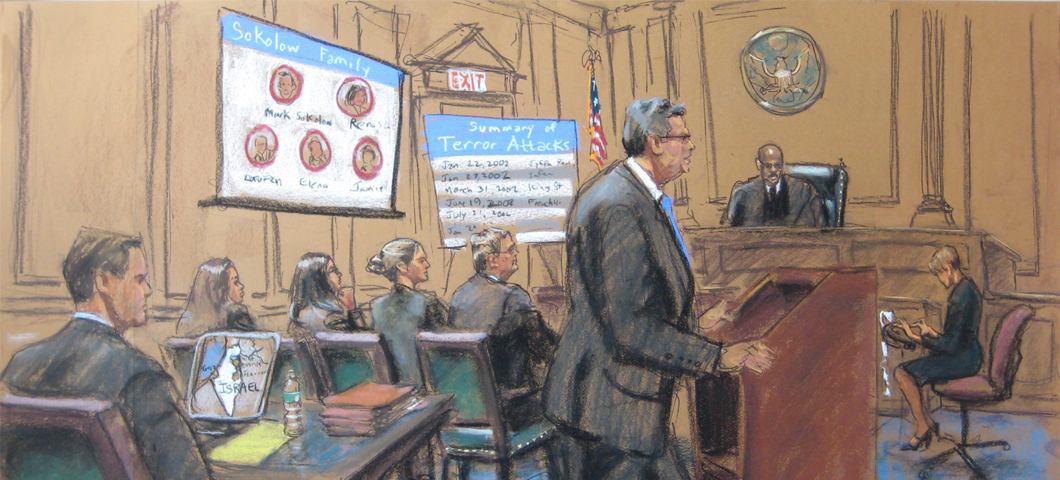Enhance your case with dynamic and well-structured trial presentations that make evidence clear.
How Trial Presentations Enhance Your Disagreement and Convince Jurors
Test discussions offer as an essential system for improving lawful disagreements and convincing jurors. By integrating visual aids, narrative frameworks, and psychological involvement, lawyers can produce a compelling situation that resonates on multiple degrees. The critical usage of visuals not just clears up complicated info however additionally records jurors' focus better than words alone. Nevertheless, the art of storytelling plays an equally vital function in transforming factual proof right into a compelling narrative, forming jurors' understandings - trial presentations. Recognizing these components can dramatically affect trial end results, increasing the question of just how each element adds to this detailed dynamic.

Value of Aesthetic Aids
Visual help play a critical function in improving the effectiveness of test presentations, as they can considerably increase target market interaction and retention of information. In the context of a trial, where jurors are entrusted with handling complicated info, visual aids offer to streamline and clear up essential points. Graphes, graphs, and images can share data and principles that may or else bewilder or puzzle jurors, enabling an extra simple understanding of the evidence presented.
In addition, aesthetic aids help in keeping juror interest throughout the proceedings. By damaging the dullness of verbal testament, these devices can stress vital arguments, making them more remarkable. Effective aesthetic aids can likewise evoke emotional feedbacks, which can be essential in persuading jurors to straighten with the presenter's story.

Crafting Compelling Narratives
A compelling story is essential in trial discussions, as it works as the backbone of effective persuasion. It allows lawyers to weave together facts, proof, and psychological elements into a systematic tale that reverberates with jurors. This narrative structure allows jurors to understand the complexities of the case while leading them through the attorney's disagreement.
To craft a compelling story, attorneys should focus on clarity and coherence. Additionally, the use of vivid descriptions can create mental images that help jurors visualize the events, making the narrative more memorable.
Moreover, incorporating vital motifs throughout the discussion enhances the core message and help in retention - trial presentations. The story ought to not only convey information but additionally stimulate a feeling of justice, highlighting the stakes involved. Ultimately, a sound story fosters a link in between our website the jurors and the instance, placing the attorney's disagreement as both qualified and engaging, consequently boosting the possibility of a beneficial verdict

Engaging the Court Mentally
Effective court interaction rests on the lawyer's ability to attach see post with jurors on an emotional degree. This connection can significantly influence jurors' understandings and their ultimate decision-making. Using emotional allures allows lawyers to humanize the case, changing abstract legal principles into relatable experiences. By offering real-life stories or endorsements, attorneys can stimulate empathy and concern, fostering a much deeper understanding of the concerns at stake.
Aesthetic help, such as photographs or video clips, can better improve psychological involvement, offering jurors with dazzling representations of the situation's human components. Crafting a narrative that highlights the struggles and accomplishments of the individuals involved makes certain that jurors see past the legal disagreements and identify the human consequences of their choices.
A lawyer's enthusiastic distribution can reverberate with jurors, enhancing their psychological financial investment in the instance. It's necessary to stabilize psychological charms with accurate evidence, making certain that jurors feel urged to act while continuing to be grounded in the fact.
Structuring Your Presentation

The body of the discussion must be realistically segmented right into crucial points, each sustained by compelling evidence. It is valuable to utilize storytelling strategies to weave truths into a story that jurors can easily adhere to. Visual help, such as charts and videos, can improve comprehension and involvement, assisting to highlight critical items of evidence.
Real-World Instance Research Studies
Analyzing real-world instance studies offers very useful insights into the art of test discussions and persuasion. The defense team efficiently used an approach that combined prominent professional testimonies with multimedia presentations, which my website mesmerized jurors and inevitably affected their decision.
Another noteworthy instance is the "McDonald's Coffee Instance," where the complainant's lawyers utilized graphic images of the injuries suffered by Stella Liebeck. trial presentations. This plain aesthetic proof played a crucial role in conveying the seriousness of her burns, causing a substantial court honor. Such instances demonstrate that impactful trial discussions usually rest on the effective integration of visuals and storytelling to evoke emotional responses from jurors
Additionally, the "Casey Anthony Trial" highlighted the significance of narrative coherence and reputation. The prosecution's failing to develop an engaging timeline lessened their persuasive power, emphasizing the need of a well-structured discussion. Assessing these instances discloses that effective test discussions need tactical planning, emotional involvement, and the capacity to reverberate with jurors' worths and beliefs.
Final Thought
Trial presentations dramatically boost debates and convince jurors via the critical use visual help, engaging narratives, and psychological involvement. By streamlining complicated information and cultivating links with the audience, these components produce a memorable and impactful experience. A well-structured discussion balances sob stories with factual proof, eventually resonating with jurors' worths. The combination of these strategies not just influences decision-making yet likewise underscores the value of effective interaction in the courtroom.